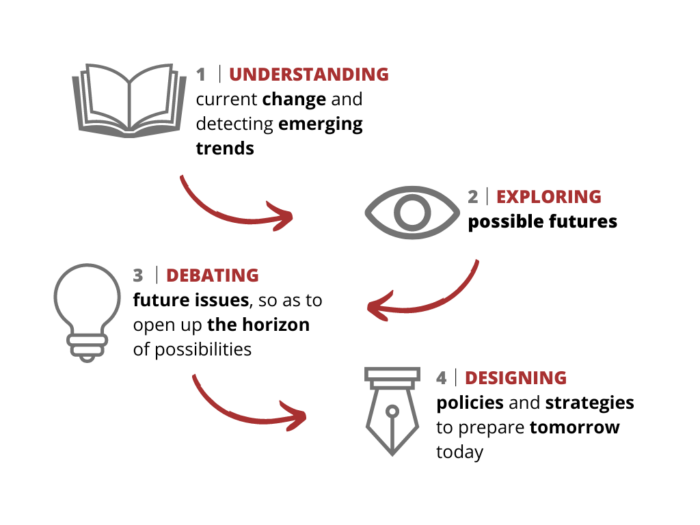From an analysis of the thinking of Count Claude-Henri de Saint-Simon (1760-1825) Pierre Musso argues that Saint-Simon was undoubtedly among the pioneers of futures studies. Indeed, contrary to the conclusion reached by some scholars from his writings, Saint-Simon should not be placed among the 19th-century utopians, such as Proudhon, but rather as one of the forefathers of futures studies.
It was through a future-oriented approach that the philosopher attempted in his prolific output (from 1802 until his death) to develop a “political science”, i.e. he wanted to detach politics from religious belief by conceiving the future as a place where an “earthly paradise” might be achieved, which would replace the Christian paradise in heaven. His method was to look as far back as possible in order to project his thinking as far as he could towards the future, aware that “the Golden Age of mankind is not behind us, it lies ahead […] in the perfection of the social order”.
In this article Pierre Musso rehearses the four main principles that Saint-Simon introduced into modern futures studies: 1) futures studies link the future with action, 2) futures studies are not about either utopias or a straightforward extension of the present, 3) they assume that we have control over the future, 4) to achieve this, monitoring is a key tool.
Saint-Simon, pionnier de la prospective ?
Cet article fait partie de la revue Futuribles n° 288, juil.-août 2003


